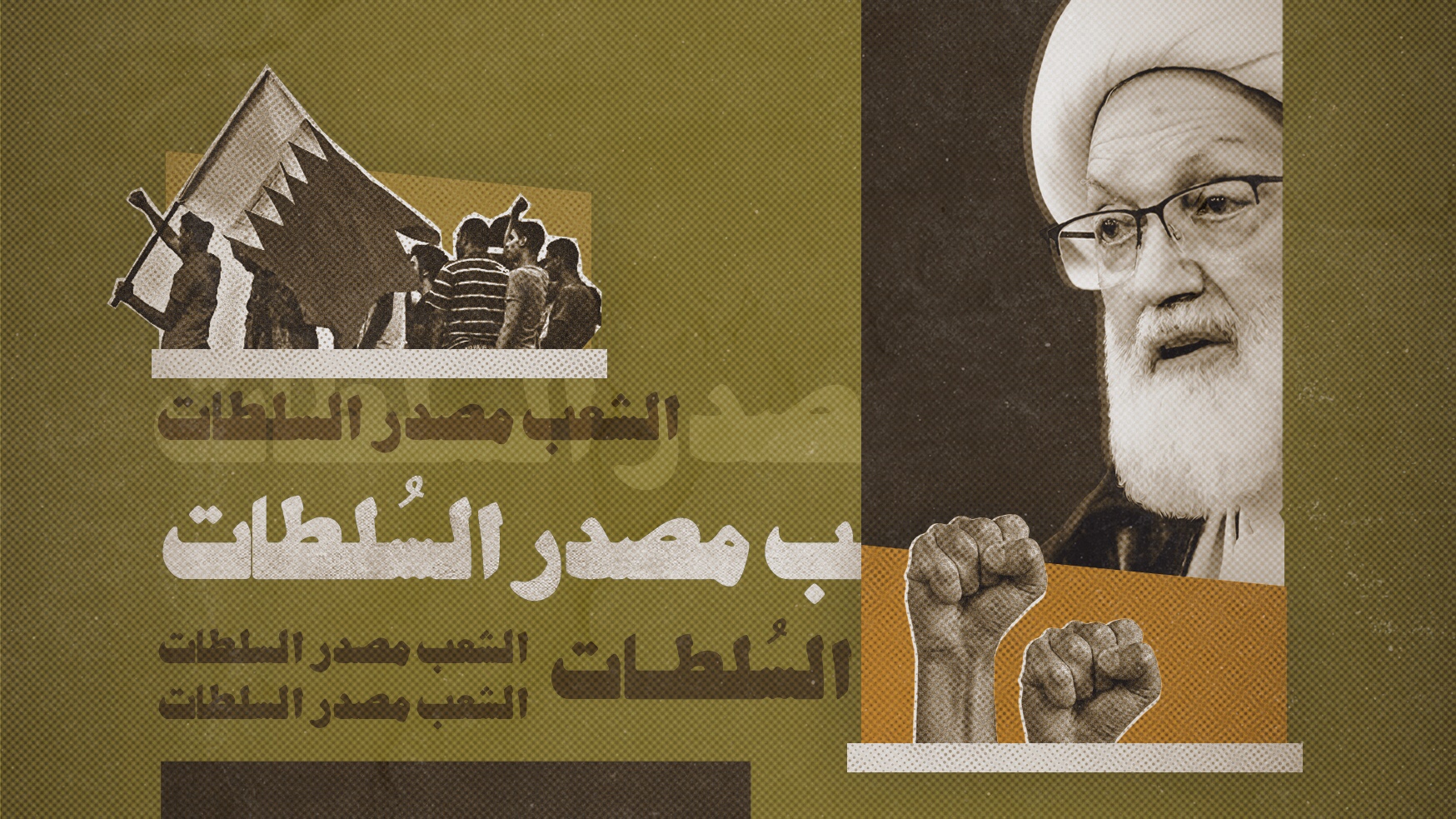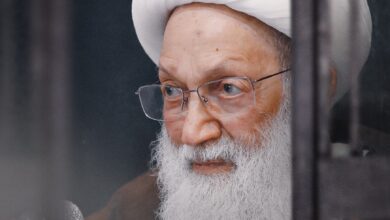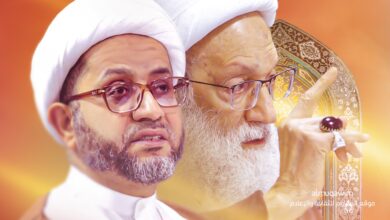Ayatollah Qassim : The Constitutional Status in Bahrain

Ayatollah Qassim in a statement regarding Bahrain’s constitutional status: The right to amend and dispose of the constitution must be reclaimed by the people.. Genuine reform cannot be maintained without the people being the source of powers
In the name of Allah, the Most Merciful, the Most compassionate
“The Constitutional Status in Bahrain”
Bahrain’s current constitution is the 2002 constitution, which was drafted after the announcement of the National Action Charter, unilaterally by the king’s will, and whereby the people have no will. It was adopted by the royals based on a project prepared by a technical advisory committee formed by the king himself. This project included amendments they claimed had been required by the charter and were compatible with it.
Thus, the reached conclusion is that Bahrain’s National Charter has the same powers of the constitution, and even believed to be powerful than it.
Accordingly, the constitutional legislator and the ordinary legislator had to take [the king’s] directives, and the amendments he imposed, so that the legislation would be compatible with his will.
But who, in the first place, has the right to make these adjustments?!
Article (104) of the 1973 constitution stipulates: “It is required to amend any provision of this constitution that the amendment be approved by a two-thirds majority of the members who make up the National Assembly, and that the Emir ratifies the amendment, as an exception to the provision of Article (35) of this constitution”.
But the 1973 constitution was annulled before the charter, there was no way to consider it, and there was no national assembly upon its ratification.
In this case, the expected and the natural for a parliament was to be formed based on free elections, so that it can draft a new constitution or introduce amendments to the 1973 constitution that matches the charter as an expression of the fact that the people are the source of authority, and has all powers to draft the constitution.
Accurately speaking, this power has been unilaterally transferred to the king, and the will of the people has been completely absent. Further, the rule has become that the king is the source of all powers, and has upper hands in drafting and amending the constitution, as if the people who have sacrificed dearly in order to stress the rule that they are “the source of powers” have had their ratification of the character reversed and have had their right relinquished as the matter has been entirely delegated to the king.
This fault and the explicit violation of the people’s opinion and right must be abandoned. Besides, any amendment to the constitution should be made based on a freely elected parliament. Otherwise, the basis of the political relationship between the people and the government will remain elusive because it is unconstitutional.
A genuine comprehensive reform, which the country would maintain no stability without it, and which the people won’t stop demanding, is not honest and cannot be maintained without reference to the rule that “the people are the source of the authorities” and without any deception that leads to its de facto reversal.
In order for the adoption of democracy, even to some extent to be valid, the right to amend and dispose of the constitution must be reclaimed by the people themselves.
It must be noted that no Muslim, who are honest to their religious teachings, can prioritize any legislation over God’s provisions and the laws of his religion, or prioritize any covenant over a covenant of pure obedience to God alone.
Issa Ahmed Qassim
July 6, 2021


